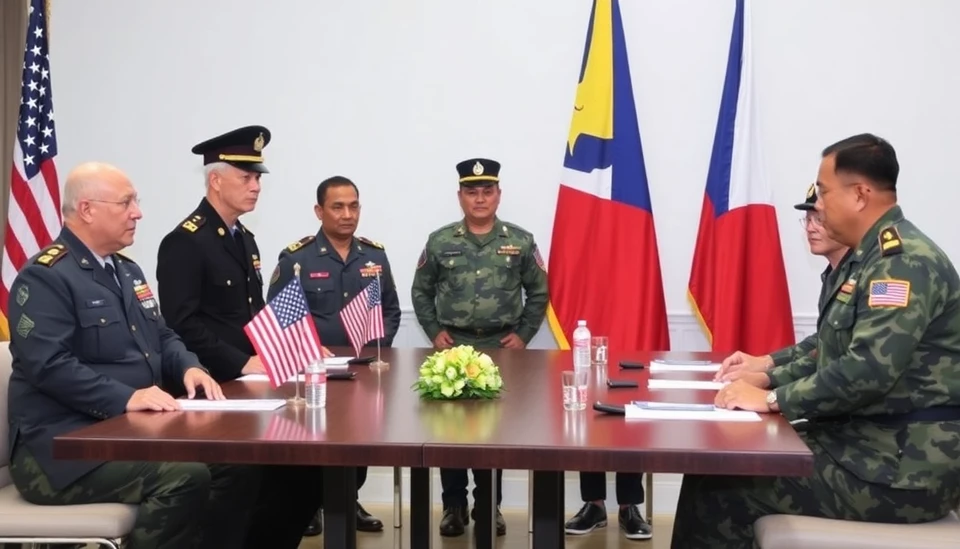
In a significant move aimed at strengthening defense ties in the Asia-Pacific region, military chiefs from the United States and the Philippines convened for discussions focused on broadening their joint drills. This meeting highlights a pivotal moment in ongoing efforts to enhance military collaboration amid increasing regional tensions.
The dialogue took place between U.S. Army Chief of Staff General Randy George and Philippine Army Chief of Staff Major General Romeo Brawner Jr. It represented a continued commitment to ensuring mutual security interests, promoting regional stability, and addressing threats that could emerge from local geopolitical dynamics.
General George emphasized the importance of deepening the partnership between the U.S. and the Philippines, which holds a long-standing defense relationship rooted in a mutual defense treaty established in 1951. The meeting underscored the ongoing evolution of military cooperation designed to adapt to contemporary security challenges facing the region, particularly in light of China's growing assertiveness in the South China Sea.
Furthermore, discussions included the possibility of increasing the number and scale of joint exercises conducted in the region. Previous drills such as Balikatan, which translates to "shoulder-to-shoulder," have seen rising participation levels from both U.S. and Philippine forces. These exercises are crucial not only for tactical training but also serve to deepen interpersonal relationships between the troops of the two nations.
As part of the efforts to enhance active cooperation, the leaders addressed logistical frameworks and resource sharing that could facilitate smoother and more effective joint operations. The intent is to ensure that both militaries are well-prepared for any eventual threat while promoting a dynamic responsive capability in facing contemporary conflict scenarios.
With geopolitical alliances continuously shifting, the Philippines’ strategic positioning has gained renewed focus, especially as the U.S. ramps up its engagement and defense commitments in the Indo-Pacific. The discussions reflect a broader strategic pivot towards nations that share democratic values and mutual defense obligations, providing a counterbalance to expanding influence by rival powers in the region.
As the meeting concluded, both military leaders expressed optimism about the potential for future developments in joint operations, reinforcing the narrative of a resilient alliance amidst emerging challenges. The outcome of these discussions could set the stage for more comprehensive military training and readiness exercises in the foreseeable future.
This partnership continues to evolve, with the U.S. and Philippines reaffirming their commitment to addressing regional security issues collectively, underlining the significance of cooperative defense postures in an increasingly complex global landscape.
In summary, the recent talks between the U.S. and Philippine military heads signal a proactive step towards reinforcing historical ties and responding to the transforming dynamics of regional security. It is a clear indication that both nations are committed to fostering a robust defense relationship that is adaptable to the changing challenges of today's world.
<#>USPhilippines #JointExercises #MilitaryCooperation #DefenseRelationship #SecurityChallenges #IndoPacific #BilateralTalks #GeopoliticalStability #MilitaryReadiness #AsiaPacific
Author: Laura Mitchell




